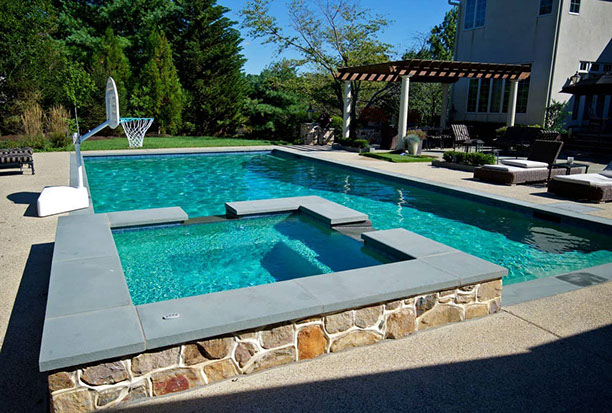
Table of Contents
Introduction
When you think of a swimming pool, you likely imagine summer fun, backyard gatherings, and a relaxing oasis. But did you know that traditional pools can have a significant environmental impact? With water consumption, chemical use, and energy demands, pools can contribute to environmental strain. Fortunately, eco-friendly swimming pools are becoming a popular choice for homeowners seeking sustainability without sacrificing luxury.
Why Choose an Eco-Friendly Swimming Pool?
Eco-friendly pools offer more than just environmental benefits—they can save you money in the long run while adding value to your home. By opting for sustainable features, you can enjoy the best of both worlds: a beautiful backyard retreat and reduced utility costs. Learn more about building a custom pool in Pennsylvania to understand how to create an eco-friendly backyard that suits your needs.
Summary: Eco-friendly swimming pools reduce environmental impact and offer long-term cost savings, making them a win-win solution for homeowners.
Sustainable Pool Options for Your Home
1. Natural Swimming Pools
Natural swimming pools (NSPs) use plants and biological filters instead of chemicals to keep the water clean. These pools often resemble ponds, blending seamlessly with the surrounding landscape.
Key Features:
- Uses a separate regeneration zone with aquatic plants for natural filtration
- Chemical-free and gentle on the skin
- Creates a habitat for local wildlife
Benefits:
- Eliminates the need for chlorine and other chemicals
- Lower operational costs over time
Drawback:
- Higher initial installation cost due to the design and required plant life
Real-Life Example: One Pennsylvania homeowner transformed their backyard with a natural swimming pool featuring local aquatic plants, creating a serene, chemical-free oasis that quickly became the focal point of their home. Explore eco-friendly pool designs for sustainable living to get inspiration for your dream pool.
Summary: Natural swimming pools offer a stunning, eco-friendly alternative to traditional pools, with reduced chemical use and increased biodiversity.
2. Saltwater Pools
Saltwater pools have gained popularity as a low-maintenance alternative to traditional chlorine pools. Instead of adding chlorine directly, these pools use a salt-chlorine generator to produce a gentler form of chlorine.
Key Features:
- Contains lower chlorine levels than traditional pools
- Softer on the skin and eyes
Benefits:
- Reduced chemical usage
- Minimal chlorine odor
Drawback:
- Salt can be corrosive to pool fixtures if not properly maintained
Client Testimonial: “Switching to a saltwater pool was the best decision we made. It’s easier on our family’s skin, and maintenance is a breeze!” — Local homeowner in Harrisburg, PA.
Summary: Saltwater pools provide a gentle swimming experience and reduced chemical exposure, making them a popular choice for families. Transform your outdoor space with a custom pool designed for relaxation and sustainability.
3. Solar-Powered Pool Heating Systems
Heating your pool can be energy-intensive, but solar-powered heating systems harness the sun’s energy to keep your water at a comfortable temperature.
Key Features:
- Uses solar panels to collect and transfer heat to the pool water
Benefits:
- Significantly lowers energy bills
- Reduces carbon footprint
Drawback:
- Requires a sunny location and an upfront investment
Traditional Pool Heating vs. Solar Pool Heating | Cost (Annual) | Environmental Impact |
Electric or Gas Heater | $500–$1,200 | High CO2 emissions |
Solar Heater | $0–$200 | Minimal CO2 emissions |
Summary: Solar-powered heating is an environmentally friendly solution that significantly cuts down on energy expenses. Discover the benefits of solar-powered heating solutions to make an informed decision.
4. Energy-Efficient Pool Pumps
Pool pumps circulate water through the filtration system, making them essential to pool maintenance. Upgrading to an energy-efficient pump can make a substantial difference.
Key Features:
- Operates at variable speeds to optimize energy use
Benefits:
- Can reduce energy consumption by up to 70%
- Quieter operation
Drawback:
- Higher upfront cost compared to standard pumps
Summary: An energy-efficient pool pump can drastically reduce energy usage, offering both financial and environmental advantages. Find Energy Star-certified pool pumps for maximum energy savings.
5. Eco-Friendly Pool Covers
An often-overlooked component of pool sustainability is the pool cover. Eco-friendly covers minimize heat loss and prevent water evaporation.
Key Features:
- Made from durable, recyclable materials
- Offers solar heating properties
Benefits:
- Conserves water by reducing evaporation
- Maintains consistent water temperature
Drawback:
- May require manual handling unless using an automatic system
Summary: Eco-friendly pool covers help conserve water and maintain pool temperatures, making them a practical addition to any sustainable pool setup. Check out the comprehensive guide to swimming pool installation costs in PA to plan your upgrades.
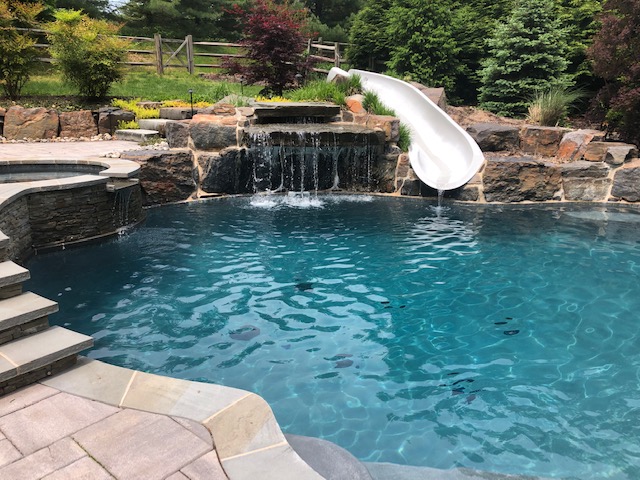
Additional Sustainable Pool Features
To further enhance the eco-friendliness of your swimming pool, consider these sustainable add-ons:
- LED Pool Lighting: Replace traditional bulbs with energy-efficient LED lights. Explore LED lighting benefits to understand energy savings.
- Automatic Pool Cleaners: Choose robotic cleaners that use less energy and run independently.
- Rainwater Collection Systems: Use collected rainwater to refill your pool and offset water usage.
Summary: Complementary features like LED lights, rainwater systems, and robotic cleaners add convenience and sustainability to your pool setup.
Eco-Friendly Pool Maintenance Tips
Implementing sustainable features is only part of the equation—ongoing eco-friendly maintenance is equally important.
- Optimize Filtration: Run the pump during off-peak hours to reduce energy demand.
- Monitor Water Levels: Keep water levels stable to avoid overfilling and wasting water.
- Avoid Over-Chemicalization: If using chemicals, follow recommended amounts to prevent overuse.
Summary: Proper maintenance ensures your eco-friendly pool remains cost-effective and environmentally sustainable.
FAQs About Eco-Friendly Swimming Pools
- Are eco-friendly swimming pools more expensive to install?
While the initial cost can be higher, the long-term savings on energy, water, and maintenance typically outweigh the upfront investment. - How do natural swimming pools stay clean?
They use a combination of aquatic plants, beneficial bacteria, and biological filters to break down contaminants. - Can I convert my existing pool into a saltwater or solar-heated pool?
Yes! Many traditional pools can be retrofitted with a salt-chlorine generator or solar heating system. - Do solar pool heaters work in all climates?
While solar heaters are most effective in sunny areas, they can still provide some heating benefits in moderate climates.
Sustainable Swimming Pools in Pennsylvania
If you’re a homeowner in Pennsylvania, you’re in the perfect location to embrace eco-friendly swimming pool features. Pennsylvania’s varying climate makes energy-efficient solutions, such as pool covers and solar heating, particularly valuable. Discover top-rated pool builders in your area to find trusted professionals who can make your vision a reality.
The Future of Eco-Friendly Pools
The trend toward sustainable swimming pools isn’t just a passing fad—it’s a lasting shift in how we interact with our outdoor spaces. With advancements in green technology, eco-friendly pools are becoming more accessible, stylish, and efficient.
Final Thoughts
Choosing an eco-friendly swimming pool is an investment in your home, your health, and the planet. By incorporating sustainable features, you can create a backyard oasis that aligns with your values and enhances your lifestyle.
Ready to make the switch? Contact us to schedule your eco-friendly pool consultation. Whether you’re building from scratch or renovating an existing pool, sustainable solutions are within reach!

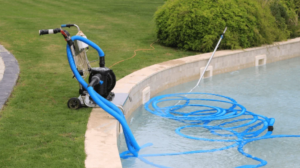
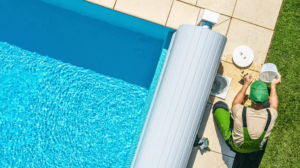
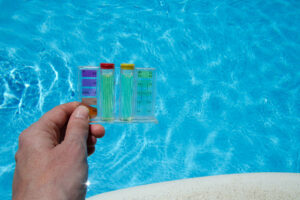

6 Responses